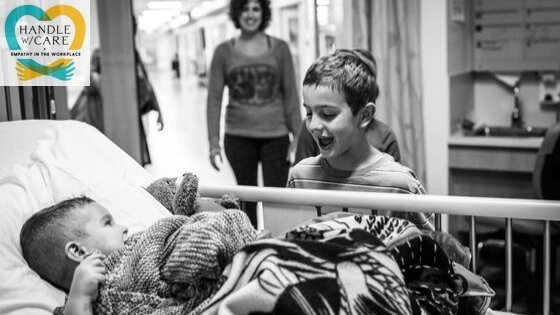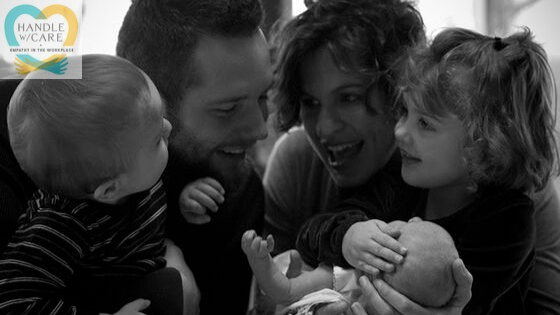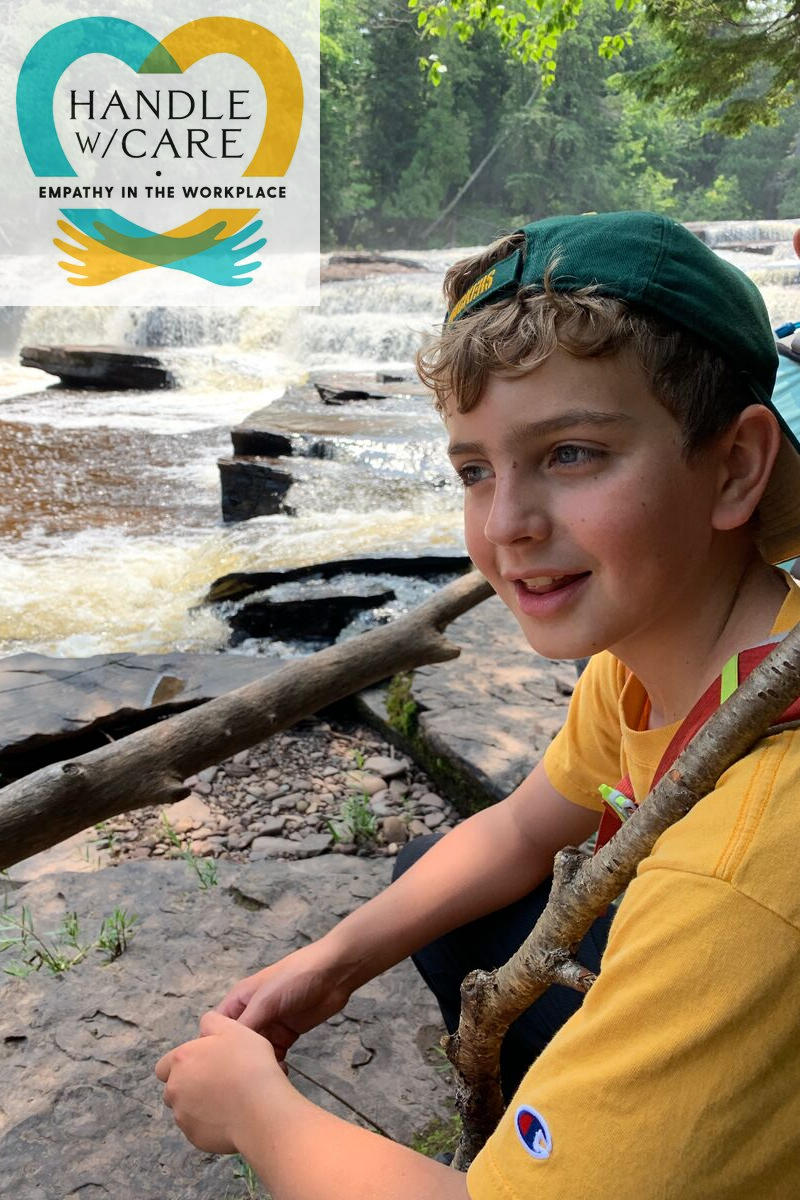Childhood Disruption, Part 3: An Interview with Magnus Mertes
Magnus visits with Moses, post-surgery
Disruptive life events linger; they cast a long shadow. Years afterwards, you can still be surprised by sadness or fear.
Magnus Mertes knows about living with pain and uncertainty; his sister died when he was just one year old and his younger brother has needed multiple heart surgeries.
In this last episode of our series on childhood disruption, Magnus shares about how pain can bring us closer to people, what kids really want from their parents, and how a note or a song can be a powerful gift to those experiencing sadness.
You can find the Handle with Care episode on Apple Podcasts, Google Play, and Spotify. You can also click here to listen to the full episode:
Brothers
Today, we finish our three-week miniseries on childhood disruption. Over the last two episodes, we have considered how disruption particularly affects children. By extension, we are also talking about the adults that care for them. If a parent goes through disruption, whether that is a divorce or a move or a death, they are also interpreting and explaining and shepherding their child. I know, from my own story, how important and exhausting this role can be.
I hope that these reflections help in three potential ways.
They help you better companion the children in your life that have experienced or are right now experiencing disruption. If you don’t remember, childhood can be hard. There are scraped knees and neighborhood bullies. Someone is always deciding when you go to bed and what you have to eat for dinner. Now, factor in a divorce or a cancer diagnosis. It can all feel pretty overwhelming, for both kids and adults.
These episodes help you show more empathy to friends and coworkers that are parenting children through seasons of disruption. These adults are not only managing their own sadness and exhaustion, they have little people that are looking to them for direction and guidance…and that is a really particular burden to carry.
Maybe these reflections help you to encounter your own childhood disruptions through a different light, to reflect on the ways that you were met or missed and how that empathy (or lack of empathy) might still be affecting you now.
Magnus, Papa, Mama, Mercy, and Ada
Here are three take-aways that I have after my conversation with Magnus
Magnus reflected that sometimes, kids say that nothing is wrong when bad things happen. Parents, in response, will just leave them alone. In Magnus’ words, “what they mostly need is to engage and be comforted.” This is a good reminder, for both kids and adults, that people crave the support of relationship and community when disruption comes.
Don’t overlook the pain and the process of young children. Magnus was only seventeen months old when Mercy died. And he was in preschool when Moses was born. In the midst of our overwhelming pain, it would have been all too easy to overlook Magnus, to think that he was too young to process what was going on…to just hope that he would be fine. Yet, these experiences have profoundly shaped him.
Music can be a great form of comfort for adults and children. There have been times where the fears were so big and words found their limits. During those times, we found that it was really helpful to have a playlist of meaningful songs that he could listen to that helped to ground and reassure him.
Magnus in the wild




